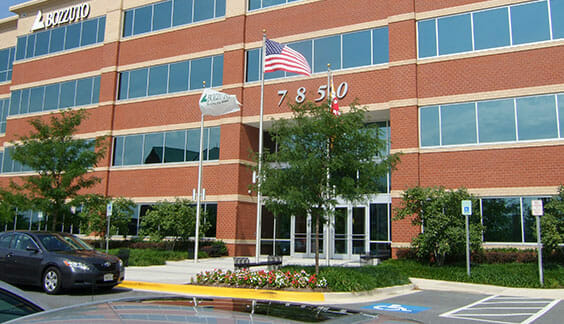Defending White Collar Crime Charges in Maryland
The first and most important thing you can do when you or someone you love is charged with a white collar crime is to seek legal counsel. The protection of an attorney is vital to anyone facing criminal charges and missteps early in the case can complicate your situation.
The experienced white collar crime attorneys at Houlon Berman will help you understand the charges brought against you and ensure that your rights are protected. Our state and federal white collar crime attorneys in Maryland will work with you to plan the best defense strategy for your case.
If you’re facing white collar criminal charges in Maryland, turn to our legal team for the help you need. Our firm is conveniently located for those in Montgomery County, Prince George’s County, and the surrounding areas.
What is White Collar Crime?
White collar crime is an umbrella term for a collection of similar non-violent offenses, usually characterized by the use of deceit, concealment, or abuse of trust in pursuit of personal or corporate interests or profit. Precise definitions vary, but some commonalities can be seen throughout; many white collar crimes are committed during the pursuit of the perpetrator’s usual occupation and are interspersed with legitimate work-related actions.
Those who have been accused of white collar crimes such as fraud of all types, embezzlement, racketeering (RICO), or identity theft, can fight these charges more successfully with the help of a white collar crime attorney.
Understanding the Charges
Due to the indirect nature of white collar crime cases, and the way they tend to intertwine legal and illegal activities, it’s important to have a clear understanding of the charges you’re facing. Your white collar crime attorney can answer any questions you may have regarding your charges, but it’s useful to have a basic understanding prior to your legal consultation.
Embezzlement
The defining factor that distinguishes embezzlement from simple theft is a position of trust. When a person has been legitimately authorized to handle or access funds or property belonging to another party, and that person then appropriates or transfers any of those resources in an unauthorized way for their own use or gain, they have committed embezzlement.
Although many high-profile embezzlement cases involve prominent executives or investment bankers illegally appropriating large sums, embezzlement encompasses the fraudulent appropriation of money on any scale; a cashier pocketing money from their till is just as guilty of embezzlement as the hedge fund manager who defrauds his clients of their life savings.
Click here for more information about embezzlement charges.
Identity Theft
When a person obtains the personal or financial details of another and uses them to fraudulently access resources, open lines of credit, or obtain other benefits in that person’s name, they have committed identity theft. With the rise of information technology and the internet, identity theft has become both widespread and well-known, and this greater awareness has led to an increased likelihood of prosecution.
Identity theft is a type of fraud, and is not limited to the use of a victim’s bank account or credit card number; another common scenario for identity theft is the fraudulent use of another’s identity for the purpose of obtaining medical treatment or prescription drugs. Your white collar crime attorney can explain the details of the charges.
Aggravated identity theft, a crime prosecuted only in Federal Court, prohibits the use of someone elses “means of identification” in connection with a scheme to defraud and carries a two (2) year mandatory minimum sentence upon conviction.
Click here to learn more about identity theft.
Racketeering (RICO)
Racketeering is the act of participating in the furtherance of an illegal business or scheme. Though RICO, the Racketeer Influenced and Corrupt Organizations Act, was originally used in fighting organized crime, there are many criminal enterprises that fall under its jurisdiction.
Racketeering crimes often involve intimidation in some form, such as the classic “protection racket,” extortion, and loan-sharking, but can also encompass other criminal behaviors intended to advance or conceal different criminal behavior, such as bribery, money laundering, obstruction of justice, and perjury. Your white collar crime defense attorney can help you understand how a particular crime falls under the heading of racketeering in a given context.
Click here for additional information on racketeering (RICO) charges.
Fraud
Many of the crimes previously discussed are examples or permutations of fraud, but there are many other criminal acts that come under the same heading. Fraud can be committed against individuals, organizations, or the government, and always involves a material misrepresentation and a scheme to defraud in order to secure some benefit at another’s expense. This can include
- Mortgage fraud
- Wire fraud
- Tax fraud
- Bank fraud
- Insider trading and other stock frauds
- Access device fraud
- Computer crimes
- Identity crimes and frauds including aggravated identity theft
- Forgeries and embezzlements
If you are facing one of these, it’s essential to have strong representation. A good white collar crime attorney will explain the fraud charges you are facing and help you build the best defense for your case.
Click here for more information about fraud charges.
Contact Houlon Berman
The attorneys at our white collar crime law firm have helped those in Rockville, Potomac, Bethesda, Greenbelt, and the surrounding areas fight a variety of charges. We’re focused on obtaining the best results possible, whether by resolution of your case or trial. Contact Houlon Berman for experienced white collar criminal defense attorneys you can trust.
Go from White Collar Crime to the main Criminal Law page
Return to the Houlon Berman Homepage


